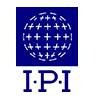
In a report titled, “Media in Lebanon: Reporting on a Nation Divided,” the International Press Institute (IPI) provides an assessment of the current challenges to press freedom in Lebanon. Commenting on the report, IPI Director Johann P. Fritz said “The Lebanese media offers diverse and wide-ranging opinion and analysis and enjoys a greater degree of press freedom than many of its regional neighbours, which are home to the some of the most restrictive media environments in the world. In recent years journalists have paid a high price for that freedom. The brutal murders in 2005 of publisher and IPI member Gebran Tueni and leading columnist Samir Qassir and the maiming of TV-journalist May Chidiac have created a climate of fear and insecurity that threatens the vitality of the media.” Read more about IPI report says political instability undermining press freedom

In a report titled, “Media in Lebanon: Reporting on a Nation Divided,” the International Press Institute (IPI) provides an assessment of the current challenges to press freedom in Lebanon. Commenting on the report, IPI Director Johann P. Fritz said “The Lebanese media offers diverse and wide-ranging opinion and analysis and enjoys a greater degree of press freedom than many of its regional neighbours, which are home to the some of the most restrictive media environments in the world.” “In recent years journalists have paid a high price for that freedom. From 8 to 13 December 2006, IPI carried out a fact-finding mission to Lebanon. Read more about Press Institute report says political instability undermining press freedom
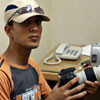
The International Press Institute, the global network of editors, media executives and leading journalists, strongly condemns the shooting of two Palestinian photographers by Israeli forces in Gaza. Hamdi Al Khur, a photographer with the Turkish-based Ihlas News Agency, was shot twice by Israeli snipers on 7 July in Beit Lahiya. Mohammad Az Zanoun, a photographer with the online news agency Ma’an, was fired upon while photographing two Palestinians who had been killed in the invasion. Read more about Editors, journalists and media executives condemn shooting of two Palestinian photographers
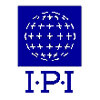
The International Press Institute (IPI) today published the IPI Intifada Report, a chronicle and statistical analysis of 562 press freedom violations during the first four years of the Palestinian Uprising. At least 478 press freedom violations were carried out by the Israeli state, including the government, the judiciary, and even the legislators. Sixteen violations were committed by Israeli settlers and civilians. Three were perpetrated jointly by Israeli soldiers and settlers. As a result, at least 497 abuses, or 88.4 per cent of all violations, were perpetrated by Israelis. Another 29 violations were carried out by the Palestinian authorities, 15 by Palestinian militants, 7 by Palestinian civilians, and one jointly by Palestinian authorities and civilians. Read more about IPI Intifada Report Says Press Freedom Deteriorating: Heavy Media Casualties, Perpetrators Go Unpunished
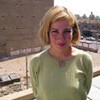
On 1 September, British freelance journalist Ewa Jasiewicz decided to return to the United Kingdom after discontinuing a legal action before the Israeli Supreme Court. Jasiewicz made the decision because, if the court had found against her, it would have created a binding legal precedent for other foreign journalists entering Israel. During the initial stages of the hearing, the court appeared in favour of allowing Jasiewicz to enter Israel but wanted to ban her from the occupied territories. The court then decided to hear evidence from the security forces ex parte, excluding both Jasiewicz and her legal team from the hearing and preventing them from understanding the true nature of the charges made against her. Read more about IPI criticises British journalist's treatment

The International Press Institute (IPI), the global network of editors, leading journalists and media executives in over 120 countries, is dismayed by the announcement that Israel’s accreditation rules for journalists are to be tightened. According to information provided to IPI, the director of the Government Press Office (GPO), Daniel Seaman, recently announced new regulations for foreign and Israeli journalists, to be introduced on 1 January 2004. Today it sent a letter to Israel’s Prime Minister Ariel Sharon Read more about Accreditation rules for journalists to be tightened

IPI is deeply concerned by the killing of Dana because it bears the hallmarks of an engagement policy which invites the allied military to shoot first and ask questions later. An engagement rule that, if continued, will only serve to increase the number of journalists killed in Iraq. At a time when President Bush has declared the war in Iraq to be over, IPI fears that the current engagement rules have not evolved to reflect this change and that the death of Dana reinforces this viewpoint. Read more about US policy towards journalists in Iraq: Shoot first and ask questions later
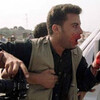
IPI published its third update on violations of press freedom in Israel and the OPT since 2000. While the casualties toll continued to rise, the percentages stayed roughly the same. Israelis were responsible for 82.9 percent of the 310 press freedom violations recorded by IPI from 28 September 2000 to 20 May 2003, Palestinians for 12.5 per cent. Ten journalists have been killed in the uprising and there have been a further 116 incidents in which journalists were injured by gunfire or shelling. During the conflict, journalists have been subject to targeted shootings, beatings, harassment, censorship, threats and obstruction in carrying out their profession. In addition, media outlets have been targeted and destroyed and broadcasting equipment seized and confiscated. Read more about Israeli violations of press freedom: Third update
In a letter to Prime Minister Ehud Barak, IPI strongly condemned the Israeli government’s decision to stop issuing permits for Palestinian journalists to enter Israeli areas or leave the Palestinian areas. Read more about IPI condemns restrictions on Palestinian journalists
In a detailed report on the crisis in Israel and the Occupied Palestinian Areas, the International Press Institute (IPI) highlighted the disturbing number of injuries to journalists and media professionals between 28 September and 22 November 2000. Read more about IPI releases report on press freedom violations for the period 28 September to 22 November 2000







